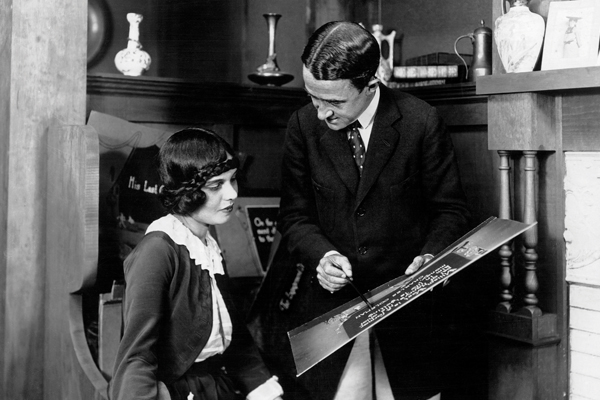Women’s role in early American cinema is often overlooked, but English assistant professor Donna Kornhaber — recently named a 2016 Academy Film Scholar —hopes to change that with her research on female writers who shaped the American silent film industry.
Kornhaber received a $25,000 grant from the Academy of Motion Picture Arts and Sciences’ Educational Grants Committee for her research proposal and forthcoming book, Women’s Work: The Female Screenwriter and the Development of Early American Film, which she says “will build on the remarkable efforts of recent feminist film historians in rewriting the history of early American cinema.”
“While women contributed to nearly all aspects of the early film industry, they were a particularly powerful force in the creation of the scenarios and screenplays that fueled the development of Hollywood,” Kornhaber says. “A full half of all the films copyrighted in the United States between 1911 and 1925 were written by women.”
“A lot of content came from women of diverse backgrounds who brought their life experiences to the screen. It was more open in the early days. The levers of power hadn’t been established yet. They were simply looking for talent.”
Donna Kornhaber
She says women developed screenplays for various genres including the Hollywood epic. Anita Loos cranked out the scenario for D.W. Griffith’s 1916 Intolerance, and June Mathis, who discovered and launched the career of Rudolph Valentino, wrote the screenplay for 1925’s Ben Hur. Cecil B. DeMille, whose name is synonymous with epic filmmaking, relied on Jeanie Macpherson to write many of his silent features, including 1923’s The Ten Commandments.
“A lot of content came from women of diverse backgrounds who brought their life experiences to the screen,” says Kornhaber. “It was more open in the early days. The levers of power hadn’t been established yet. They were simply looking for talent.”
She adds that filmmaking changed with the advent of sound movies, which helped transform studios into major businesses. “By the 1930s you begin to see complaints about ‘the tyranny of the woman writer,’ and many of the women screenwriters who had been so prominent in the decade before begin to lose their influence as the industry shifted around them.”
Kornhaber joins 14 Academy film scholars who are currently working on projects and 15 other scholars whose works have already been published. Established in 1999, the Academy Film Scholars program is designed to support significant new works of film scholarship.
“She has written a brilliant, prize-winning book on Charlie Chaplin, she has just finished a new book on film director Wes Anderson, and now she has won a scholarly Oscar for her next project on female screenwriters: a truly amazing achievement,” says Elizabeth Cullingford, chair of the Department of English. “She embodies the kind of all-around scholarly and pedagogical excellence we most treasure in the English Department.”
